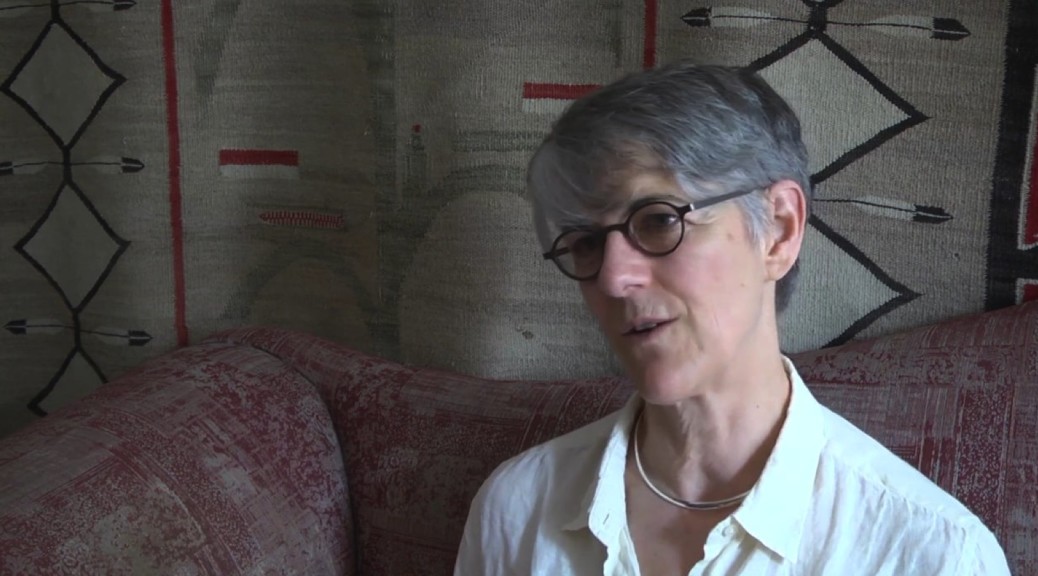CHRISTIA MERCER
Gustave M. Berne Professor of Philosophy
IRWGS Core Faculty
IRWGS Director, 2000-01
I am teaching a course in prison. I’m the first faculty member at Columbia to teach a course as part of the Justice Initiative. In order to accommodate all the time that would take, Patricia Dailey and I worked together to set up another class that I would teach that would not require a huge amount of grading and so on. Theorizing Activism, which was begun and designed by Janet Jakobsen—awesome Janet Jakobsen—I picked up on. I might have made it more a philosophy course, but there was no time to do that. Unlike what Janet had done in the past, which was heavy reading, I thought it would be very interesting to limit it to activists, people who were already engaged in activism, or students from my Philosophy and Feminism class who wanted to be.
There’s two kinds of students in the class: people who had been very involved in activism already, or students who wanted to be. I thought, since I’m not a trained activist, it would be much better for students and easier for me, quite honestly—given that I was already teaching in prison—to bring activists in. I think it was a success. I had someone every week for about six weeks, I think—six, seven weeks [of the semester] in a class—come in and talk about activism. Students got to ask questions. The project for each student in the class was to be an activist, and then to write up what we called field notes about what they did. It was really good for the students. I think most of the students enjoyed it. I have yet to read the evaluations, but I think they did. I was really amazed at how eager students were to engage in that way.
Q: Can you talk about the class that you’re teaching as part of the Columbia Center for Justice, the class you’re teaching in prison?
Geraldine Downey is one of the people that began the program, and she introduced me to the amazing women who began the Center for Justice in the School of Social Work, and that’s Kathy Boudin and Cheryl Wilkins. Both of them were incarcerated for over twenty-five years. They knew one another and began activist work in prison. Geraldine and I thought that it would be interesting to try to teach a version of Literature Humanities. Part of my motivation to do that is to make the college pay attention to the program. My hope was to get some of my Lit Hum students to go in with me. It’s really powerful when students go inside. But the dean of Columbia College, Jim Valentini, who I am happy to go on record as saying has no imagination about these things, didn’t get the point of it. So I was not allowed to take students in this term, and I’m not sure when that’s going to happen.
One of our women’s studies students who I met through IRWGS is going in with me. In fact, she’s the one I recommended and maybe you talked to. In the spring we did three ancient plays, all from Lit Hum: The Oresteia, The Medea, and Lysistrata, and the students loved it. We discovered in the middle of the semester that students weren’t even taking it for credit. We thought they were taking it for credit, but they knew that they weren’t. Nobody informed us of that, by the way. It’s a little bit disorganized, I have to say. But I was struck by the fact—and the students said this—that it was so much fun to them that they were taking it anyway.

